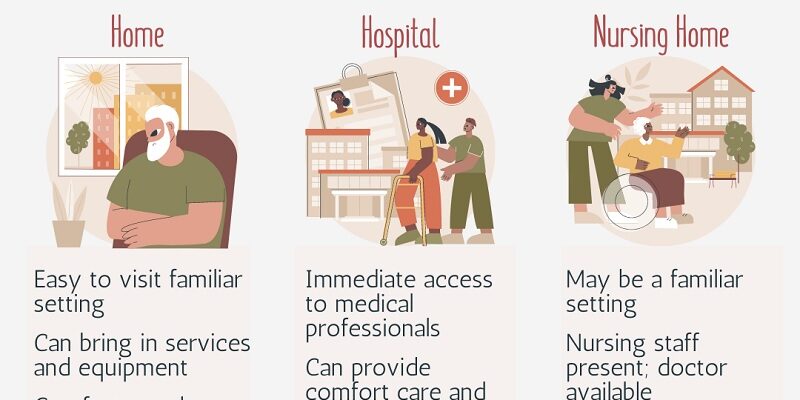When faced with the reality of a terminal illness or an incurable condition, many individuals and their families encounter the term “comfort care.” Often surrounded by misconceptions and emotional weight, understanding what comfort care entails and its implications can be a crucial step in making informed decisions about end-of-life care.
What is Comfort Care?
Comfort care, also known as palliative care, focuses on providing relief from the symptoms and stress of a serious illness. The goal is to improve the quality of life for both the patient and their family. This approach prioritizes symptom management, emotional support, and maintaining dignity, rather than seeking a cure.
Unlike hospice care, which is generally reserved for those in the final months of life, comfort care can be introduced at any stage of a serious illness. It can be combined with curative treatments or be the sole focus of care when treatment options have been exhausted.
Key Components of Comfort Care
- Pain Management: Alleviating pain through medications and therapies tailored to the individual’s needs.
- Symptom Control: Addressing symptoms such as nausea, fatigue, or difficulty breathing.
- Emotional and Psychological Support: Providing counseling and support to help patients and families cope with the emotional challenges of illness.
- Coordinated Care: Ensuring all aspects of care are aligned with the patient’s wishes and needs, often involving a team of healthcare professionals.
Does Comfort Care Signal the End of Life?
The decision to pursue comfort care does not automatically signal the end of life. Rather, it represents a shift in focus—from curing the disease to enhancing quality of life. Comfort care can coexist with other medical treatments, and its introduction does not necessarily mean that life-extending measures are being withdrawn.
For many, opting for comfort care is about acknowledging the limits of medical intervention and prioritizing personal values and preferences. It often involves difficult conversations and thoughtful consideration of what constitutes a meaningful and dignified life.
When to Consider Comfort Care
Comfort care should be considered when:
- The burden of treatment outweighs its potential benefits.
- Quality of life is prioritized over the extension of life.
- A patient expresses a desire to focus on comfort and dignity.
The Emotional Journey
Choosing comfort care is deeply personal and can evoke a range of emotions, from relief and acceptance to fear and grief. It is important to engage in open and honest discussions with healthcare providers, loved ones, and patients themselves.
Support groups, counseling, and spiritual guidance can be invaluable resources during this time, helping individuals and families navigate the complex emotional landscape of end-of-life decisions.
Conclusion
Comfort care is about living as well as possible for as long as possible. While it does not necessarily signal the end of life, it represents a compassionate approach to care that respects the wishes and dignity of the individual. By understanding comfort care, individuals and families can make informed and empowered choices about their healthcare journey.


This article provides a clear and compassionate explanation of comfort care, which can be a sensitive topic for many. It’s reassuring to know that comfort care is about improving quality of life at any stage of illness.
I appreciate how the article distinguishes between comfort care and hospice care. Understanding these differences is crucial for making informed decisions about end-of-life care.
This article dispels common misconceptions about comfort care effectively. It’s comforting to learn that it doesn’t necessarily mean giving up on treatment but rather focusing on quality of life.
The focus on emotional support in comfort care is so important and often overlooked. This article does a great job highlighting its significance for patients and families.
I found the section on pain management particularly informative. It’s good to know that there are tailored approaches to alleviate pain, which can greatly enhance patient comfort.